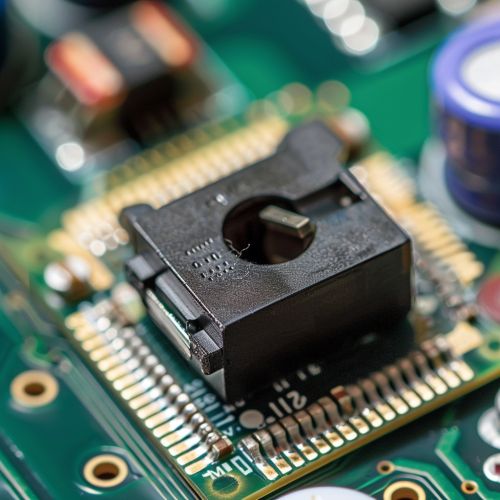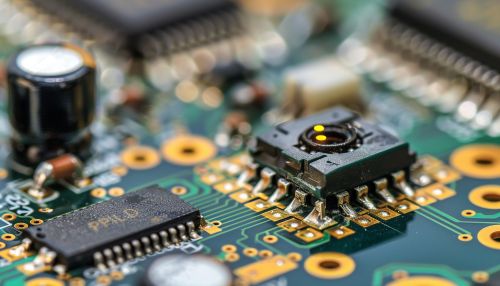Magnetic Sensor
Introduction
A Magnetic sensor is a device that measures magnetic fields or changes in magnetic fields. They are used in a wide range of applications, from navigation systems to industrial machinery and scientific research. Magnetic sensors can detect and measure the strength and direction of a magnetic field, providing valuable data for various applications.


Types of Magnetic Sensors
There are several types of magnetic sensors, each with their own advantages and disadvantages. The most common types include Hall Effect sensors, magnetoresistive sensors, and reed switches.
Hall Effect Sensors
Hall Effect sensors are devices that measure the magnitude of a magnetic field. They are named after Edwin Hall, who discovered the Hall Effect in 1879. Hall Effect sensors are commonly used in automotive applications, such as measuring the position of the crankshaft in an engine.
Magnetoresistive Sensors
Magnetoresistive sensors are based on the magnetoresistive effect, which is the change in resistance of a material when exposed to a magnetic field. These sensors are highly sensitive and can detect very small changes in magnetic fields, making them ideal for precision applications.
Reed Switches
Reed switches are a type of magnetic sensor that operates by an external magnetic field. When the magnetic field is strong enough, it causes the reeds to come together, completing the circuit. Reed switches are often used in security systems, where they can detect when a door or window is opened.
Applications of Magnetic Sensors
Magnetic sensors have a wide range of applications in various fields. Some of the most common applications include navigation systems, industrial machinery, scientific research, and consumer electronics.
In navigation systems, magnetic sensors are used to detect the Earth's magnetic field. This information is then used to determine the direction in which the device is facing. This is particularly useful in devices such as compasses and GPS systems.
Industrial Machinery
In industrial machinery, magnetic sensors are used to monitor the position and movement of parts. This can help to ensure that machinery is operating correctly and can also help to detect any potential issues before they become serious problems.
Scientific Research
In scientific research, magnetic sensors are used to measure magnetic fields. This can be useful in a wide range of research areas, from studying the Earth's magnetic field to researching new materials and technologies.
Consumer Electronics
In consumer electronics, magnetic sensors are often used in devices such as smartphones and tablets. They can be used for a range of functions, from determining the orientation of the device to detecting the presence of a magnetic field.
Future Developments
The field of magnetic sensors is constantly evolving, with new technologies and applications being developed all the time. One area of particular interest is the development of more sensitive and accurate sensors. This could open up new possibilities in areas such as medical imaging, where magnetic sensors could be used to detect changes in the body's magnetic field.
Another area of interest is the development of smaller, more compact sensors. This could make it possible to incorporate magnetic sensors into a wider range of devices, from wearable technology to tiny, implantable medical devices.
